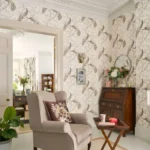The societal landscape is rapidly changing, and with it, the approach to aged care is evolving to meet the needs and expectations of an ageing population. Senior living is no longer synonymous with dependency and institutional care; instead, a new era is emerging where independent living aged care takes centre stage. This shift is empowering individuals in their later years to maintain control over their lifestyles while receiving the support they need.
The Significance of Independence
Independence is a crucial part of an individual’s sense of self-worth and identity. As we age, the desire to remain autonomous doesn’t wane; however, the capacity to perform daily tasks may. This is why innovative solutions that promote independence among seniors are so vital.
The provision of services and environments that enable older individuals to live as independently and safely as possible enhances their quality of life. Not only does this approach respect the personal freedoms of seniors, but it also contributes positively to their mental and physical health.
A New Approach to Aged Care
The conventional model of aged care often emphasises hands-on assistance for almost every aspect of daily living. However, the future of aged care is being reshaped to put residents at the helm of their lives. Independent living options integrate the autonomy of private living with the availability of care when it’s required.
This blend of independence and support is key to a model that centres around the individual. Focusing on empowering the elderly to make choices about their day-to-day activities, meals, and social interactions can significantly improve their overall well-being.
Designing for Dignity
Living spaces are being designed with both functionality and aesthetics in mind, ensuring that environments are safe, easily navigable, and comfortable for seniors. These principles help maintain dignity and encourage a higher level of activity and sociability within the community.
From architecture to technology, each component of independent living facilities is curated to facilitate ease of living. The incorporation of intuitive design features can reduce the need for frequent hands-on care, nurturing a sense of self-reliance among residents.
The Role of Technology in Independence
Advancements in technology play a significant role in the evolution of aged care. Modern tools and systems are available to assist in monitoring health, providing communication channels, and ensuring safety. Wearables, emergency call systems, and telehealth services are just some innovations that support independent living for the elderly.
Technology not only aids in managing physical health but also promotes social engagement. Digital platforms enable residents to stay connected with family, friends, and the community, combating loneliness and bolstering emotional well-being.
Flexible Care for Diverse Needs
No two individuals have the same needs, and this is especially true for seniors. Flexible care models that adapt to personal requirements are essential. Independent living facilities often offer a range of services that can be tailored to each resident’s unique situation.
This flexibility ensures that levels of care can be adjusted over time as needs change. For those with minimal needs, independent living means minimal intervention, with support available on an as-needed basis. For others, it’s the reassurance that higher levels of care are within easy reach if the necessity arises.
Community Integration
An integral benefit of independent living aged care is the emphasis on community. Living among peers encourages the formation of friendships and facilitates communal activities. Socialisation is a key component for a healthy and happy retirement, and well-designed communities foster this beautifully.
Whether it’s group fitness sessions, educational workshops, or social outings, the opportunity for interaction is vast. These shared experiences not only deliver joy but can also lead to improved mental agility and a sense of belonging.
Embracing a New Chapter With Confidence
The transition to aged care is often fraught with anxieties and uncertainties. However, the contemporary approach to independent living seeks to lessen these concerns by providing a bridge between complete autonomy and traditional care.
Seniors are not only settling into a place they can call home but are doing so with the confidence that their independence won’t be compromised. As aged care continues to evolve, the value placed on individual choice, dignity, and community stands as testament to a brighter future for senior living.
Looking Ahead: The Transformation Continues
The landscape of aged care is one that is continually embracing new ideas and innovations. As societal needs shift, so too will the configurations of aged care. The current trajectory sees a transformation towards more dynamic, inclusive, and person-centred living arrangements.
These changes herald a positive outlook for current and future generations of seniors. The aged care industry’s receptiveness to change is a clear signal that the sense of independence so deeply valued by individuals will be preserved and enhanced in the years to come.
To discover the future of aged care and how it is redefining senior lifestyles, consider exploring the options available for independent living aged care. These innovative solutions are not only changing the landscape of aged care but are also revolutionising the experience of ageing in society today.
Conclusion
In conclusion, embracing independence through contemporary aged care living solutions is a vital step towards ensuring that seniors lead fulfilling, dignified, and joyful lives. The future of aged care resonates with the ideals of autonomy, flexibility, and community integration. It’s a future where the elder population can genuinely look forward to enjoying their golden years with the support they need, balanced with the freedom they desire.








